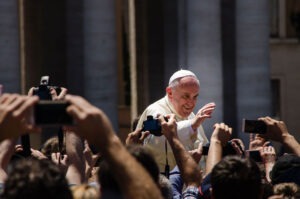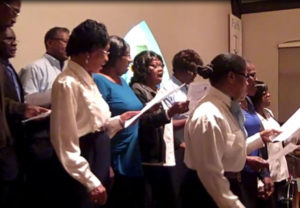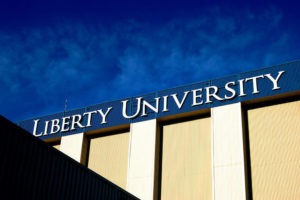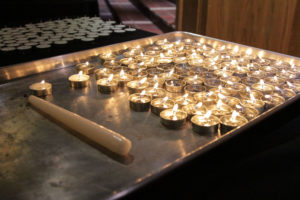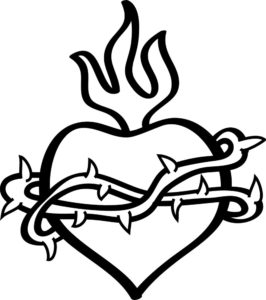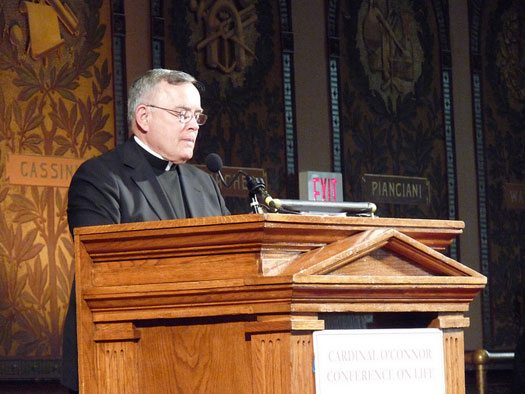
August 2, 2017; New York Times
On July 13th, the Rev. Antonio Spadaro, editor-in-chief of the Vatican-vetted Jesuit journal La Civiltà Cattolica and a longtime confidant of Pope Francis, criticized hardline American Catholic conservatives for forming an “ecumenism of hate” with Evangelical Protestants in their united support for President Trump and his policies.
The article, “Evangelical Fundamentalism and Catholic Integralism: A Surprising Ecumenism,” was co-written by the Rev. Marcelo Figueroa, a Presbyterian pastor who is editor of the Argentine edition of the Vatican newspaper, L’Osservatore Romano, in the pope’s native country.
For some, the “blockbuster” article glowed with holy fire. For others, the fires of hell were on display. Jason Horowitz at The New York Times took note of this building debate online and elsewhere. In speaking with Father Spadaro, Horowitz learned that the primary message of the controversial article “was the pope’s argument that religion in the service of politics or power is ideology, and that the manipulation of anxiety for political ends risks rendering the church a ‘sect of the pure.’” Thomas D. Williams, the Rome Bureau Chief for Breitbart News then wrote that the article “unjustly defames real Catholic/Evangelical dialogue.”
Spadaro and Figueroa described the worldview of American evangelical and Catholic conservatives as “not too far apart’’ from jihadists. Charles Joseph Chaput, O.F.M. Cap., the Archbishop of Philadelphia, responded by likening Spadaro and Figueroa to “useful idiots.” Horowitz informs us that, “the pope has vexed conservatives by repeatedly declining to elevate Archbishop Chaput to the rank of cardinal, a requirement for entrance into the conclave that will choose the pontiff’s successor.”
NPQ reported on this rising controversy in February after Francis delivered a wide-ranging reflection on family life entitled “The Joy of Love.” Four leading conservative cardinals conspicuously released a letter demanding that Francis answer five yes-or-no questions, known in Latin as “dubia.” Answering those questions would clarify for these cardinals whether Francis was promoting heresy. Francis regarded the yes/no format of the dubia as a trap and did not reply. Francis considers family issues to be a pastoral matter that priests need to resolve on an individual basis. Some see this crisis as being as serious as the fourth-century debates over the nature of Jesus Christ.
Chaput and others have clashed with pro-choice Catholic politicians. Chaput publicly rebuked the University of Notre Dame for awarding an honorary doctorate to President Barack Obama and has been a strong voice in national debates concerning gay marriage and embryonic stem-cell research. Chaput has also urged Notre Dame to invite President Trump to speak at the Catholic university.
Sign up for our free newsletters
Subscribe to NPQ's newsletters to have our top stories delivered directly to your inbox.
By signing up, you agree to our privacy policy and terms of use, and to receive messages from NPQ and our partners.
The Spadaro-Figueroa essay took direct aim at conservative religious support for President Donald Trump. The authors accuse radical conservative church leaders of promoting a “xenophobic and Islamophobic vision that wants walls and purifying deportations.” The writers oppose attempts to provide theological justification for the type of “apocalyptic geopolitics” advocated by White House Chief Strategist Steve Bannon, who is a regular NPQ concern.
The writers also criticized the far-right Catholic American media organization ChurchMilitant.com for framing the presidential campaign as a “spiritual war” and Trump’s surprise win as “a divine election.” They note that America’s religious conservative leaders “do not take into account the bond between capital and profits and arms sales,” and that they suffer from “a sort of anesthetic with regard to ecological disasters and problems generated by climate change.” Ultimately, the fundamentalist evangelical and Catholic views are radically opposed to those of Pope Francis, who urges “inclusion, peace, encounter and bridges.”
“Francis is carrying forward a systematic counter-narration with respect to the narrative of fear,” they wrote. “Francis is courageous here and gives no theological-political legitimacy to terrorists, avoiding any reduction of Islam to Islamic terrorism. Nor does he give it to those who postulate and want a ‘holy war’ or to build barrier-fences crowned with barbed wire.”
Founded in 1850, the influential La Civiltà Cattolica has addressed pressings issues from religious liberty, Communism, and racism to anti-Semitism between World War I and World War II. The magazine is said to reflect the views of the pontiff today because Francis chose not to have his own, ideologically aligned Roman Curia. The Spadaro-Figueroa article attempts to explain.
Francis wants to break the organic link between culture, politics, institution and Church. Spirituality cannot tie itself to governments or military pacts for it is at the service of all men and women. Religions cannot consider some people as sworn enemies nor others as eternal friends. Religion should not become the guarantor of the dominant classes. Yet it is this very dynamic with a spurious theological flavor that tries to impose its own law and logic in the political sphere.
Given the vitriol from the highest tiers of American right-wing Catholicism, the Spadaro-Figueroa essay clearly hit a nerve. These writers are calling out a small but vocal and influential element of American Catholicism for their right-wing political views that include a libertarian ethos predicated on the belief that free market outcomes are virtuous, and that individualism trumps solidarity and communal obligation. The Spadaro-Figueroa article calls out the hardline conservative glorification of military adventurism and their denial of climate change. For Spadaro-Figueroa (and presumably Francis), the Catholic understanding of rights is twinned with duties, such as striving to give everyone a living wage, housing, medical care, education, and social services.—James Schaffer



